Chinese filmmaker stars at Sao Paulo festival
Updated: 2014-10-27 03:43
By ZHANG FAN in Sao Paulo(China Daily USA)
|
||||||||
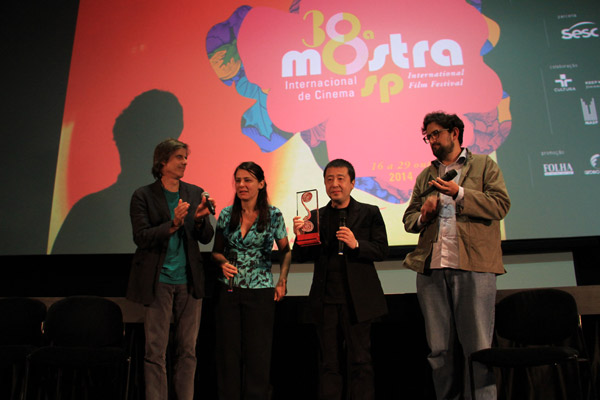 |
|
Chinese film director Jia Zhangke (second from right) at the premiere of the documentary Jia Zhangke, a man from Fenyang in Sao Paulo at the 38th Sao Paulo International Film Festival on Oct 25. The documentary is made by Brazilian director Walter Salles (left), which, according to Salles, is to record the idea of the most important director in the world. Zhang Fan / China Daily |
Chinese film director Jia Zhangke (second from right) at the premiere of the documentary Jia Zhangke, a man from Fenyang in Sao Paulo at the 38th Sao Paulo International Film Festival on Oct 25. The documentary is made by Brazilian director Walter Salles (left), which, according to Salles, is to record the idea of the most important director in the world.
Chinese director Jia Zhangke is the most important director of our times, said Walter Salles, the acclaimed Brazilian director of many world renownedmovies, in Sao Paulo on Oct 25.
Salles had just completed a documentary about Jia entitled Jia Zhangke: A Man from Fenyang in Portuguese. The film is one of many taking part in the 38th Sao Paulo International Film Festival from Oct 16 to Oct 29.
"I wanted to make a film about Jia because his films are very special," said Salles at the premiere ceremony of the film in Sao Paulo. "He is the director who is best at reflecting the reality of our lives. And I am not just talking about China, his films have to do with the whole of the human experience of everyone in the world."
Salles also wrote a book about Jia, The World of Jia Zhangke, which provides more details of the director's life and ideas.
"In a word I find him the most important director at work in the world today," said Salles. "And this is a point of view shared by many critics globally."
He praised Jia's gift for revealing the reality of people at different levels that "very few directors manage to blend into just one film; Jia Zhangke does it in every single film".
Salles' film is actually the third documentary about Jia, with two previous ones made by French directors.
"It is said this documentary is the first dialogue between directors from two developing countries," said Jia during an interview with China Daily in Sao Paulo on Oct 23.
Jia Zhangke, 44, is from Fenyang, Shanxi province, and is generally considered a leading figure of the so-called Sixth Generation of Chinese film directors, with works such as Still Life (2006), Platform (2000) and All Tomorrow's Parties (2003) winning a series of international awardsincluding theGolden Lion at the Venice Film Festival in 2006.
The US Public Broadcasting Service once described Jia as the only director in the world who tried to record the valuable moments of China's past which is now in the middle of an economic miracle.
"Though China and Brazil are located far away from each other, the two developing countries share many problems and emotions. We both focus on people who are ‘one step slower' than the society," Jia said. "There are many things in common between us."
"It is amazing to find someone who really understands you in such a remote place," he added.
Jia and Salles first met in 1998 at the Berlin Film Festival and then, in 2007, the two directors had a more thorough conversation at the Sao Paulo International Film Festival.
"I am really touched by Walter's understanding of me and my work. When he told me he wanted to make a film and write a book about me, I did not take it seriously, since he was really busy. However, when we met again in Cannes in 2008 he told me he was already working on it and I thought, Ok, let's do it," Jia said.
The shooting started in 2013 and the 100-minute documentary follows Jia from Paris toBeijingand then to Fenyang, Jia's hometown in Shanxi province, where most of his early films are based.
The Pick Pocket (1997), for example, is about a thief named Xiao Wu who lives in Fenyang and tries to break with his life of crime after falling in love with a hooker but fails and is arrested when his friend and love betrays him.
Some criticize Jia for portraying the cruelty of society. Jia argues that truth itself is beautiful and should be treasured.
"For me, movies and film should reveal the true status of a person and a society. The eternal and inner motive of making a film is a love for mankind, putting caring eyes on ordinary people and their memories," Jia said.
fanzhang@chinadailyusa.com

 Beijingers see blue sky again after smoggy days
Beijingers see blue sky again after smoggy days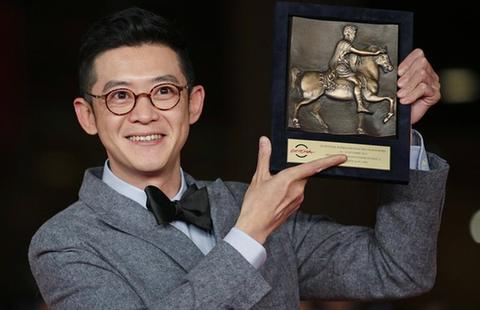
 9th Rome Film Festival kicks off
9th Rome Film Festival kicks off
 Highlights of China Fashion Week
Highlights of China Fashion Week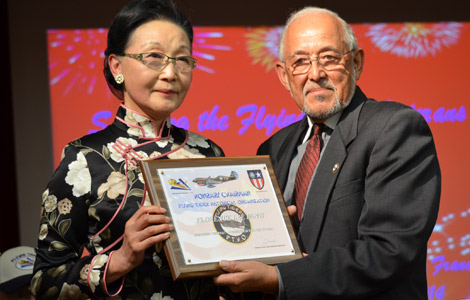
 Remembrance of Flying Tigers & WWII Veterans
Remembrance of Flying Tigers & WWII Veterans
 Lang Lang plays at the UN Day concert
Lang Lang plays at the UN Day concert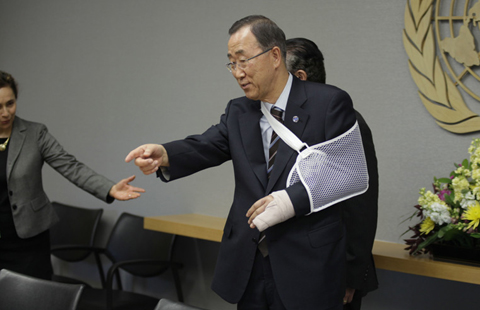
 Politicians don't let minor injuries stop them
Politicians don't let minor injuries stop them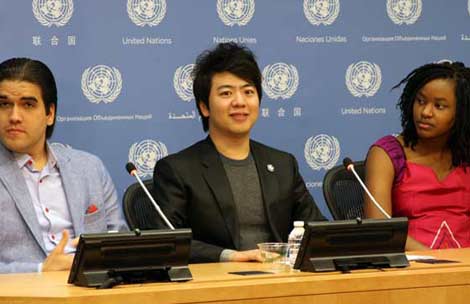
 Concert with Chinese pianist helps UN celebrate anniversary
Concert with Chinese pianist helps UN celebrate anniversary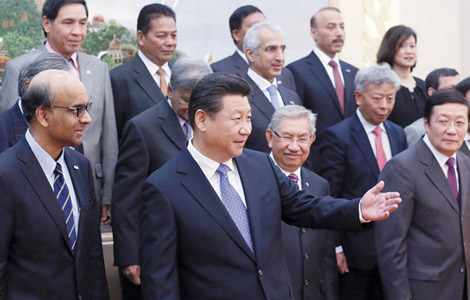
 Accord reached on key bank
Accord reached on key bank
Most Viewed
Editor's Picks

|

|

|

|

|

|
Today's Top News
Improving air quality seen as 'priority of priorities'
The road goes on for teacher Levine
Redesigned SAT test not brainwashed
Police step up efforts against smugglers
Stricter border check for terrorists
China mulls military spending efficiency
Beijing plans steps to clean air during APEC
China to provide the 4th batch of assistance to fight ebola
US Weekly

|

|







